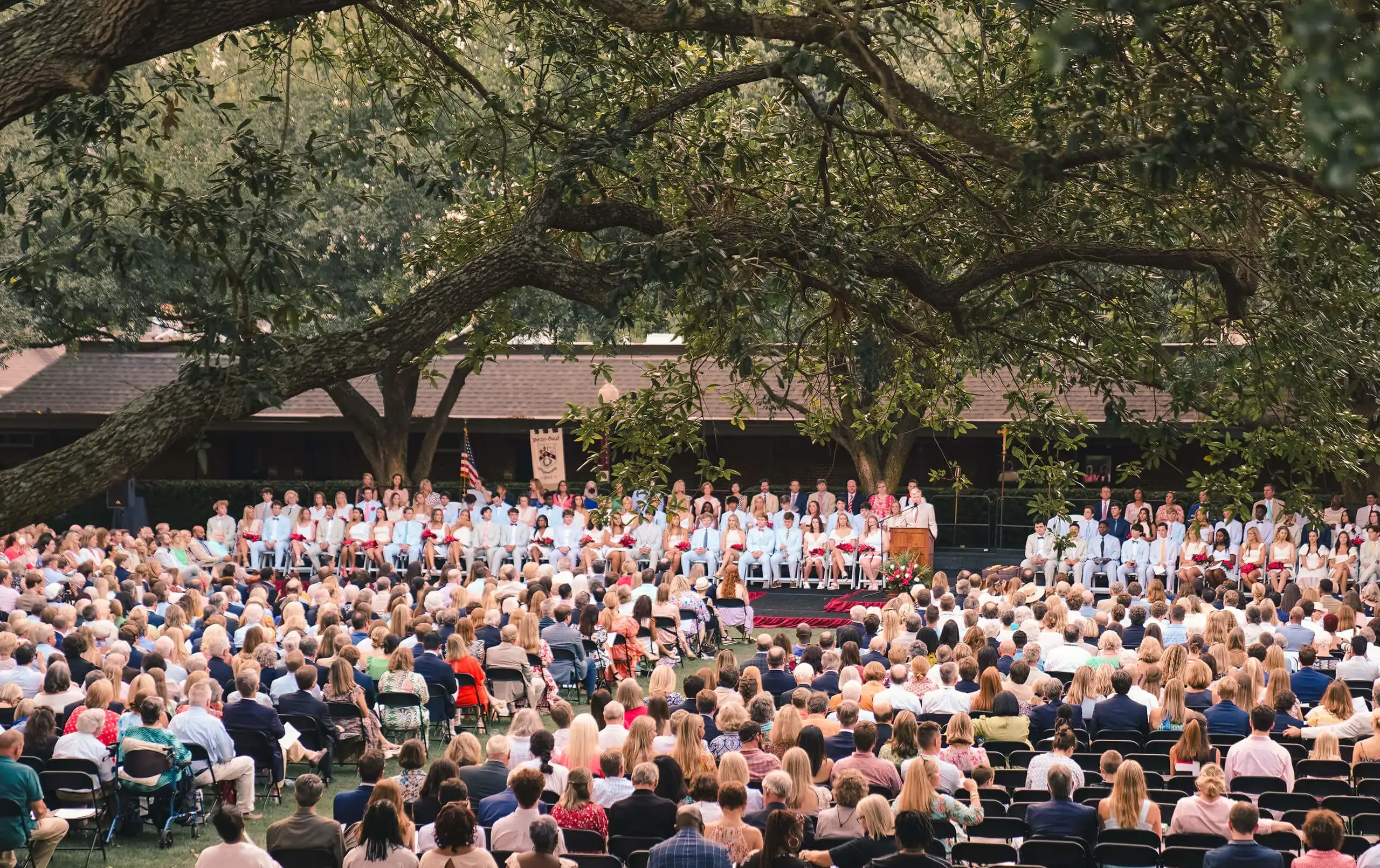
Honor
Honor at Porter-Gaud
The formal tradition of academic honor at Porter-Gaud School dates back at least one hundred years and may constitute one of the oldest examples of a secondary-level, student-administered Honor Council in the United States.
Faith, honor, and knowledge
Its current iteration encompasses all three divisions of the school, and its foundation reposes upon the acronym WATCH and is embodied in the school prayer:
May our words be full of truth and kindness, our actions gracious and honorable, our thoughts unselfish and charitable, our character noble and upright, and our habits virtuous, that our school family may grow in faith, honor, and knowledge, as we watch together in all things.
- Amen.
As a community, we embrace the responsibility of being stewards of this credo. Each student translates the WATCH prayer to academics:
“As a student of Porter-Gaud, I pledge not to lie, cheat, or steal.”
Every syllabus underscores this commitment, and the foyer of the Upper School affirms this contract in the form of each student’s signed acknowledgement. Though the signature board’s public pledge constitutes a culminating moment in the academic life of a Porter-Gaud student, a curriculum of honor begins with the arrival of our youngest Cyclones.
In the Upper School, empowering students to self-regulate questions of academic and personal honor continues a documented history that dates back at least to the beginning of the 20th century. The following images show the members of the Honor Council in 1921 and 1925:
The honor system is student-administered by a Council of ten students.
One student is elected from each class each year, and, once elected, that individual serves for the remainder of his or her high school career.
Service on the Honor Council supersedes all other co-curricular activities; members, therefore, exemplify admirable dedication as guardians of the tradition. Two faculty advisors provide guidance and logistical support, but the decision whether or not a report is brought to a hearing lies entirely with student purview.
Cases may be dismissed, receive an ‘intervention’ (internal warning), or culminate in a formal hearing. A quorum of no less than seven members and one advisor is required.
In the instance of a hearing, the Honor Council adjudicates guilt or innocence, and then the Chair conveys both verdict and recommended consequences to the Head and Assistant Head of Upper School, with whom the ultimate decision rests.
Of equal importance, the Honor Council also provides support to all divisions through education and consultation, ensuring its role is as preventative as it can be punitive.
Honor Council Advisors
- Mike McCabe
- Rebecca Wade
Email the honor council to report a concern or use one of trh forms below.
Honor with our younger students
| Lower School |
|---|
|
In the Lower School, students learn that being honest means being open, trustworthy and truthful. Lower School students practice honesty when they:
|
| Middle School |
|
Middle School students first begin signing the Honor pledge on assignments in the 5th grade:
The ideas of honor are reinforced through a continued emphasis on WATCH, or Words, Actions, Thought, Characters, and Habit. In Life 101, our youngest Middle School students learn the application of the Honor Code as it pertains to a school environment that has lockers without locks and an independence in following school procedures. We share a foundational trust in our Middle School students to make honorable choices. Students begin learning about academic integrity in writing and presentations, exploring ways to cite work from research and avoid plagiarism. When there are occurrences of breaking the Honor Code, students meet with the Middle School Head. The emphasis is on learning techniques to avoid breaking the Honor Code and working to restore trust in the student. An Upper School Honor Council member also meets with the student, with the primary goal of education rather than punitive measures. |


We would love to discuss your place at Porter-Gaud.


